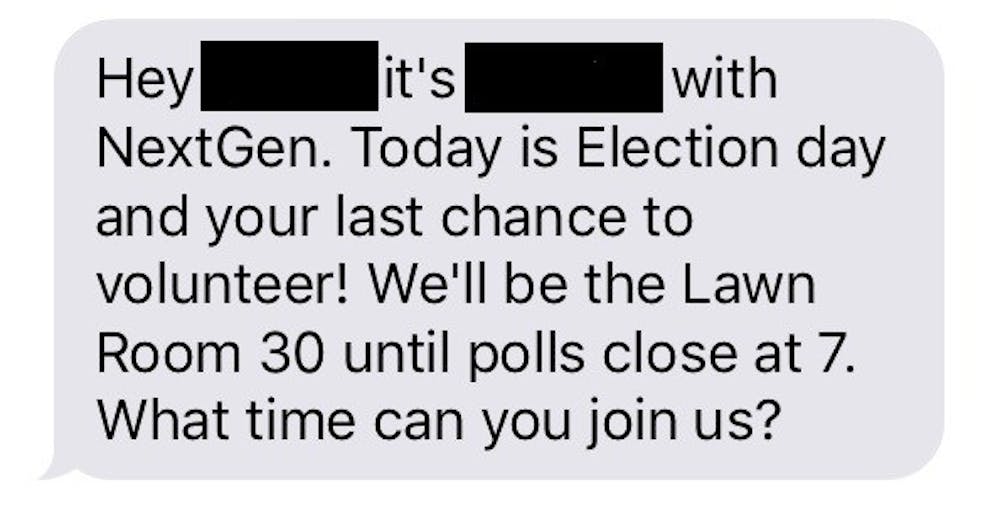During the 2017 Virginia general election cycle, the data of 40,000 students from Virginia public universities was given to political campaigns around Virginia. These campaigns proceeded to text students, imploring them to vote in the 2017 elections. While public efforts to encourage civic engagement can be beneficial, these campaigns’ personal contact with students violated their privacy. The origin of the violation, however, lies not with the political campaigns, but in the public nature of student contact information.
NextGen Virginia is a progressive political subsidiary of NextGen America, which advocates for increased use of clean energy and supports political candidates who campaign on climate action. The organization used the Freedom of Information Act to collect student phone numbers and email addresses and distribute them to political organizations. Fortunately, members of the Virginia House of Delegates recognized these problems, and introduced legislation to prevent the publication of student information. Of the two bills currently proposed, we support the legislation of Del. Chris Hurst (D-Blacksburg), which seeks to eliminate students’ sensitive information from the public record.
Although their mission was well-intentioned, their request for personal cell phone numbers and email addresses of students from all 39 of Virginia’s public colleges violated the privacy of individual students. NextGen’s conduct may be legal, as this information is public to any individual or organization who requests it, however, this must change in order for colleges to protect their students from unwanted solicitation. Although collected by colleges, students’ personal phone numbers are not directly associated with the schools, and therefore should not be distributed to external organizations — such distribution unnecessarily exposes students to potentially malicious encounters. While colleges and universities have a responsibility to withhold this sensitive information on their own, the state should prevent the scenario from ever arising.
Hurst, who represents the 12th district of Virginia, has submitted a bill to the Virginia House of Delegates that seeks to remove student cell phone numbers and email addresses from publicly available directories. The bill, which is currently assigned to committee, would help universities better protect their students’ privacy. During his campaign, Hurst received in-kind donations of $55,792 from NextGen, but has denounced the group’s collection, and the proposal of this bill represents his commitment to prevent such abuses in the future.
In addition to Hurst’s bill, Del. Tony Wilt (R-Harrisonburg), who represents the 26th district of Virginia, submitted a separate bill in November 2017 that addressed the same problem, but in a less direct manner. Wilt’s bill addresses the current “opt-out” method, through which students have the opportunity to remove their personal information from state colleges and universities’ public records. According to Wilt, that system creates ambiguity in that it allows public colleges to distribute students’ personal information without their express consent. Instead, Wilt’s bill proposes an “opt-in” system, where colleges do not have the right to publish the sensitive information without their students’ voluntary participation. Although Wilt’s bill does offer a potential solution, it does not go far enough in its goal of protecting student privacy. The personal phone numbers and email addresses of students should not be available at all — Wilt’s bill still leaves open the opportunity for third-party organizations to solicit individual students.
The Virginia House of Delegates should enact Hurst’s bill. It adequately protects the privacy of students of Virginia state colleges and universities by removing personal information from public record. NextGen and other organizations should be prevented from taking advantage of this sensitive information, and this bill is an important step towards that goal.






